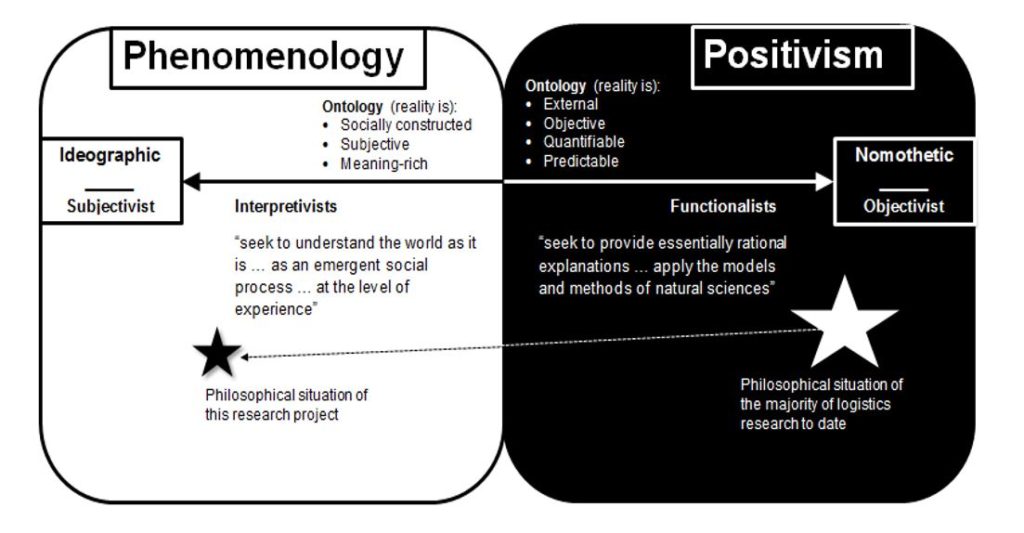Phenomenology in Logistics and SCM Research
Although long the norm in anthropology, sociology, and healthcare, qualitative methods are still struggling for recognition in the disciplines of purchasing, logistics, operations management, marketing, and general management (Ellram, 1996). Mentzer and Kahn (1995) noted that qualitative techniques are underused in logistics, operations, and materials management research; Ellram and Siferd (1994) noted that the overwhelming majority of empirical research in logistics, operations, and materials management is undertaken using quantitative methods. This omission implies the epistemological topography of such fields is phenomenologically arid.
The Philosophical Situation of the Envisaged Research

The influence of the human dimension is indirectly documented in the SCM literature, for example: perception of risk shapes managers’ choice of mitigation method (Sitkin and Weingart, 1995), and agreement among managers on the importance of network-related risk was identified by Jüttner et al (2003). Contravening positivist currents, Scott and Westbrook (1991) showed that traditional (i.e. logical and numerate) tools of risk management (SC mapping and critical path analysis) are ineffective assessors of network risk.
By definitional consensus, the typical SC is a network of processes and organizations (Stevens, 1989; Aitken, 1998; inter alios). This is construable as both analytically- and positivistically-biased. That each node is isolable and discreet yet elemental to an integrated whole is simplistic, if not notionally contradictory, but reflects positivist belief in the systematic isolation of elements. In the case of research into networks (whose nodes are independently motivated humans), reduction to variable level is implausible, and theory generated thereby of questionable value. Positivist/quantitative research models attempt to theorize and generalize SC risk management activities, but only qualitative methods can explain why and how human factors influence risk.
